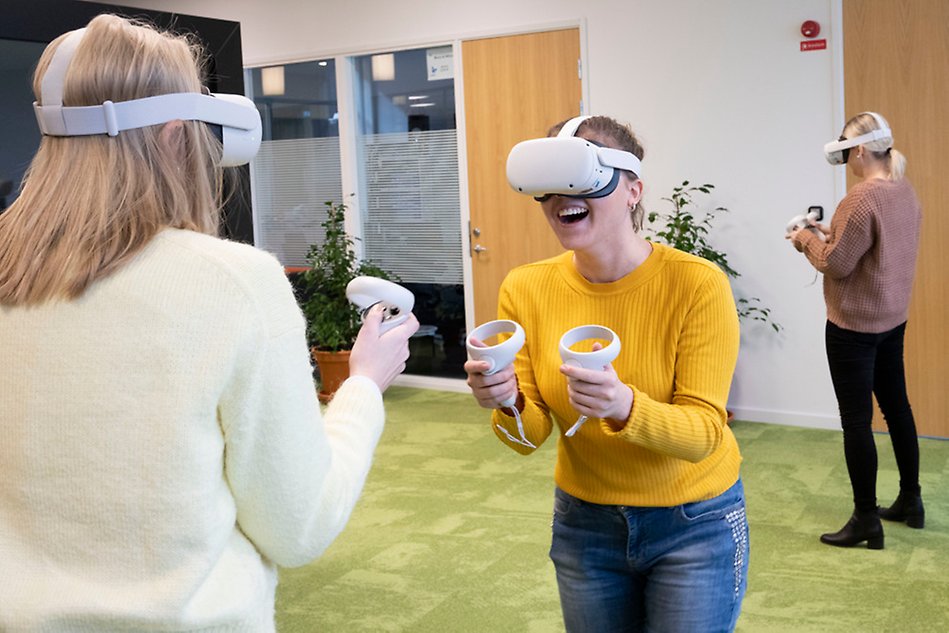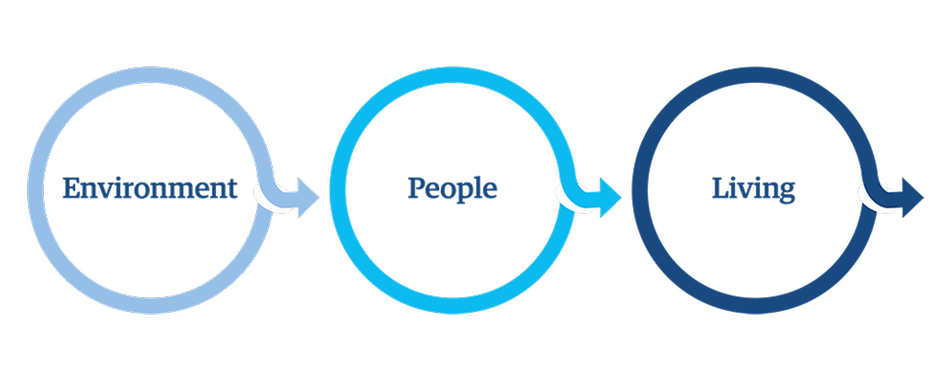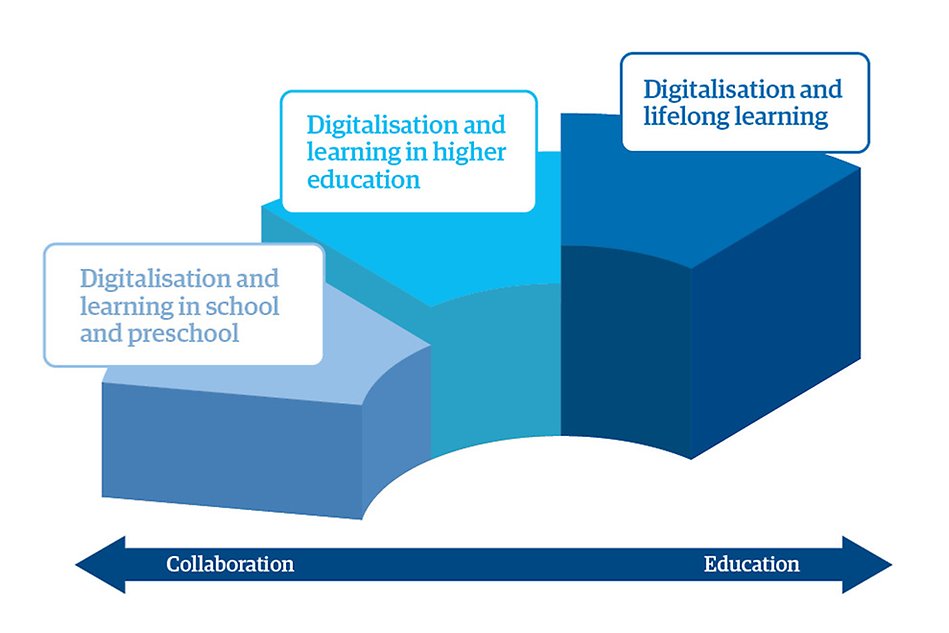LeaDS – Learning in a Digitalised Society
Digitalisation transforms our everyday life and society as a whole. Digital tools affect how citizens of all ages work, study, consume and maintain social connections. This places new demands on how teaching and learning should be organised.

Upcoming activities
Don't miss what's happening in LeaDs! Find out about upcoming activities here. For questions, please contact Pernilla Nilsson: pernilla.nilsson@hh.se
Presentations at the SETT fair in Kista
15 April 2026, Kista
Research-based leadership in reality – beyond simple answers, Pernilla Nilsson, professor.
More about Pernilla Nilsson’s presentation (in Swedish) External link.
AI on the curriculum – a pilot project in Year 7, Nina Bergdahl, assistant senior lecturer.
More about Nina Bergdahl’s presentation External link.
Dissemination seminar for the research project AI in staff rooms and classrooms
11 May at 15.00–16.30 via Zoom.
The target group is teachers who participated in the study and interested colleagues. Contact Nina Bergdahl to participate.
The research program addresses questions about how digitalisation changes the conditions for teaching and learning, as well as the competence of people and organisations to handle digital environments. Various methods are used to describe, analyse and understand how digitalisation affects learning at the individual, group and organisational level. Among other things, the research programme adresses how digital technology and media change processes for learning and knowledge development in society, and what consequences this development has on learning.
A starting point in the research programme is critical, ethical and sustainable development and use of information and communication technology and how it can add value to learning. LeaDS has three central themes: digitalisation and learning in school and preschool; digitalisationand learning in higher education as well as digitalisation and lifelong learning. The programme also links to the focus area Smart Cities and Communities and its area of strength The Smart Resident in Small and Medium-sized Cities.
Research questions and themes
In the programme, following broadly formulated questions are addressed:
- How is the digitalisation of society changing the conditions for teaching and learning in schools, in higher education and in workplaces (industry and public sector)?
- How can digital technology be developed and used in educational environments and in other contexts to support learning, communication, and skills development?
- What processes and skills are required to manage a digitalised school, working life and society and how can these skills be described, analysed, and understood?
- What new learning opportunities are offered through the development and use of modern digital forms of interaction and automated systems based on artificial intelligence and machine learning?
Three central themes
- Digitalisation and learning in school and preschool
Contact: Emma Edstrand - Digitalisation and learning in higher education
Contact: Jeanette Sjöberg - Digitalisation and lifelong learning
Contact: Lars-Olof Johansson
Participating researchers
School of Education, Humanities and Social Sciences
- Nina Bergdahl, Associate Senior Lecturer
- Eva Brooks, Visiting Professor
- Anne-Marie Cederqvist, Associate Senior Lecturer
- Emma Edstrand, Senior Lecturer
- Nina Emilsson, Lecturer
- Annika Forsler, Senior Lecturer
- Kristina Hellberg, Senior Lecturer
- Patrik Lilja, Senior Lecturer
- Pernilla Nilsson, Professor
- Sylvana Sofkova Hashemi, Visiting Professor
- Jeanette Sjöberg, Senior Lecturer
- Björn Sjödén, Senior Lecturer
- Martin Viktorelius, Associate Senior Lecturer
PhD students
School of Information Technology
- Mark Dougherty, Professor
- Carlos Nascimento Silla Junior, Professor
- Pablo Picazo-Sanchez, Assistant Senior Lecturer
- Michel Thomsen, Senior Lecturer
- Maria Åkesson, Professor
PhD students
School of Health and Welfare
- Linus Andersson, Senior Lecturer
- Ebba Sundin, Senior Lecturer
- Elenita Forsberg, Senior Lecturer
- Peter Karlsson, Senior Lecturer
- Maria Heintz, Assistant Senior Lecturer
PhD student
School of Business, Innovation and Sustainability

Multidisciplinary research
The research program is multidisciplinary involving scholars from all academies at Halmstad university:
- Researchers from educational sciences (including subject didactics), pedagogy, media and communication sciences and sociology have specific expertise in how digitalisation affects teaching and learning (the use and evaluation of technology).
- Researchers from informatics, computer science and engineering have specific expertise in the development of new digital technologies, about evaluating and comparing existing methods and tools.
- Researchers from innovation management have specific expertise in knowledge management (individual and digitalisation), flexible developments and enhancing learning using technology involving academic and business audiences.
- Digital transformation and ethical consequences of digitalisation.
- From information technology and robotics, researchers have also expertise in applied artificial intelligence, simulation and modelling, data mining and social robots.

News within LeaDS
Publications
Publications in DiVA (the University's digital scientific archive) linked to LeaDS
More information
Focus area Smart Cities and Communities
Collaboration arenas
Contact
-
Professor and Research Programme Leader
-
Professor and Deputy Research Programme Leader

